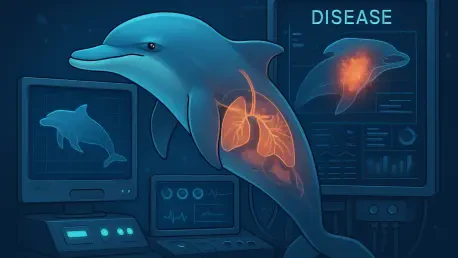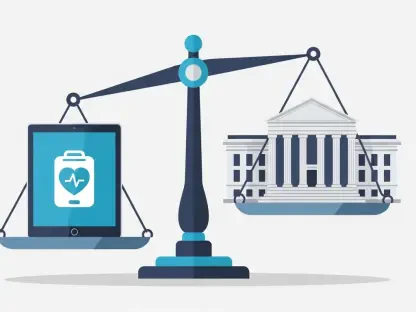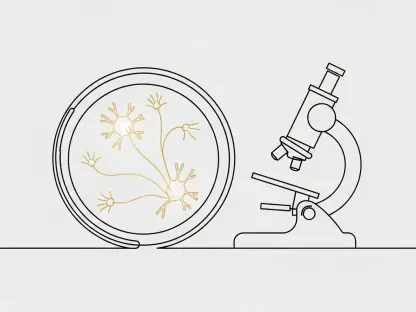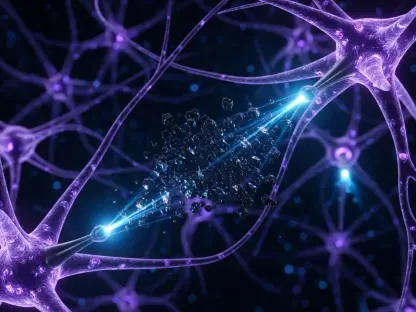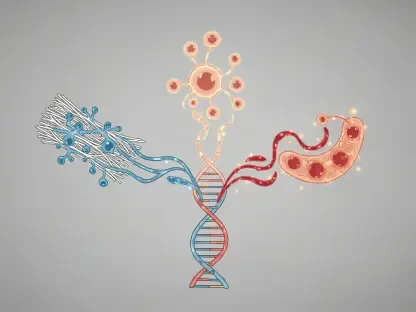Imagine a world where diseases like cancer are detected not just early, but with such precision that treatments can be tailored to the exact cellular makeup of a patient, transforming the future of healthcare. This is no longer a distant dream but a tangible reality brought closer by cutting-edge artificial intelligence. Developed by researchers at McGill University, DOLPHIN AI stands at the forefront of this medical revolution, offering unprecedented insights into single-cell data to uncover hidden disease markers. This review delves into the transformative potential of this technology, exploring how it redefines disease detection and personalized medicine in today’s healthcare landscape.
Core Features of DOLPHIN AI
At the heart of DOLPHIN AI lies its innovative approach to analyzing single-cell transcriptomics data. Unlike traditional methods that focus on gene-level analysis, this tool drills down to the exon and junction levels, capturing minute variations in RNA expression. Such granularity allows for the identification of subtle disease indicators that often go unnoticed, providing a clearer picture of cellular health and dysfunction.
The technology leverages advanced AI algorithms to process vast datasets with remarkable speed and accuracy. This capability ensures that complex biological information is translated into actionable insights, enabling rapid detection of abnormalities. In practical terms, DOLPHIN AI has demonstrated its prowess by identifying over 800 unique markers in pancreatic cancer data, a feat unattainable by conventional tools.
Beyond raw data processing, the system offers a nuanced understanding of disease progression. By mapping out cellular states with precision, it aids in distinguishing between aggressive and less severe forms of illness. This level of detail is crucial for clinicians aiming to devise targeted interventions that align with individual patient profiles.
Performance and Real-World Impact
In clinical settings, DOLPHIN AI has proven its worth by enhancing diagnostic accuracy across various diseases. Its ability to pinpoint specific markers in conditions like pancreatic cancer has paved the way for earlier interventions, significantly improving patient prognosis. This precision reduces the reliance on trial-and-error approaches, streamlining therapy selection.
The tool’s impact extends to research environments as well, where it supports the development of personalized treatment plans. By revealing hidden patterns in cellular behavior, it equips scientists with data to explore new therapeutic avenues. This has led to more informed decisions in drug development, potentially shortening the timeline from lab to bedside.
Moreover, the adaptability of DOLPHIN AI ensures it can be applied to a range of medical challenges beyond cancer. Its framework is poised to address diverse conditions by analyzing unique cellular signatures, thereby broadening its utility in modern medicine. This versatility marks it as a cornerstone technology in the push toward data-driven healthcare solutions.
Challenges in Scaling and Integration
Despite its groundbreaking capabilities, DOLPHIN AI faces hurdles in scaling to handle datasets from millions of cells. The computational demands of such extensive analysis require robust infrastructure, which may limit accessibility for smaller institutions. Addressing this bottleneck remains a priority for ongoing development efforts.
Regulatory landscapes also pose challenges, as integrating AI tools into clinical practice involves navigating complex approval processes. Ensuring compliance with data privacy standards adds another layer of difficulty, especially when handling sensitive patient information. These barriers must be overcome to fully realize the technology’s potential in mainstream healthcare.
Additionally, the need for specialized training to operate and interpret results from DOLPHIN AI cannot be overlooked. Bridging the gap between technical complexity and user-friendliness is essential to encourage widespread adoption among medical professionals. Current initiatives focus on simplifying interfaces and enhancing educational resources to support this transition.
Future Horizons for Cellular Analysis
Looking ahead, DOLPHIN AI holds promise for even greater contributions to medical science, particularly in drug discovery. By creating virtual cell models, it could simulate how cells respond to various treatments, reducing the need for lengthy clinical trials. Such advancements might accelerate the development of new therapies over the next few years, from now until 2027.
The potential to predict treatment outcomes through digital simulations also offers a cost-effective alternative to traditional research methods. This capability could transform how pharmaceutical companies approach innovation, prioritizing efficiency without compromising accuracy. It stands to reshape economic models within the healthcare sector by minimizing resource-intensive processes.
Furthermore, as computational power and AI algorithms continue to evolve, the scope of DOLPHIN AI is expected to expand. Enhanced integration with other diagnostic tools could create a more holistic approach to patient care, merging cellular insights with broader health metrics. This synergy promises a future where medicine is not only reactive but proactively tailored to prevent disease progression.
Reflecting on DOLPHIN AI’s Journey
Looking back, DOLPHIN AI carved a significant niche in the realm of precision medicine by offering a window into the cellular intricacies of disease. Its ability to detect hidden markers and guide personalized treatment reshaped how clinicians approached diagnostics and therapy. The technology’s success in real-world applications, particularly with pancreatic cancer, underscored its value in improving patient outcomes.
As a next step, stakeholders should prioritize investments in infrastructure to support large-scale data analysis, ensuring that institutions of all sizes can access this tool. Collaborative efforts between developers and regulatory bodies are also critical to streamline integration into clinical workflows. By addressing these areas, the groundwork is laid for DOLPHIN AI to further innovate and democratize advanced healthcare solutions in the years that follow.
